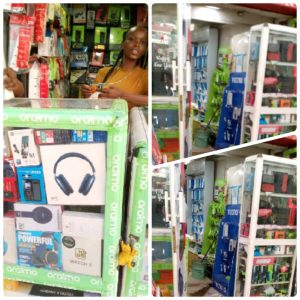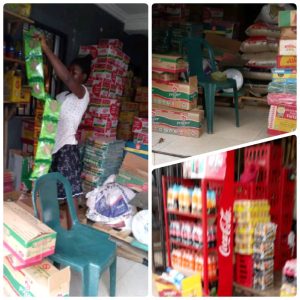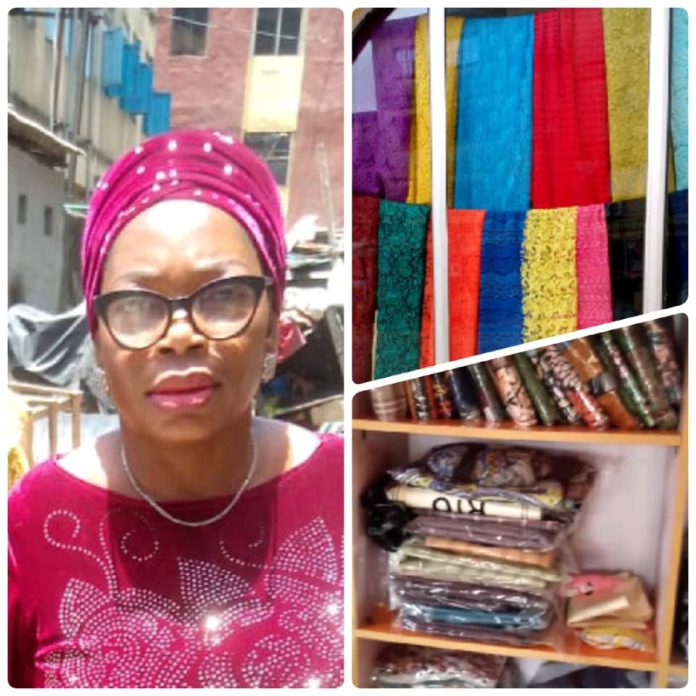Nigeria heavily depends on road transportation as a primary means for the movement of goods across the country. Consequently, any upswing in fuel prices directly impacts transportation costs.
According to Trading Economics, the country has experienced a notable increase in its annual inflation rate, rising to 25.8% in August 2023 from 24.08% in July. This marks the highest inflation rate since September 2005. The surge is attributed to various factors, including the removal of fuel subsidy, the devaluation of the naira, and security issues in food-producing regions.
The increase in transportation expenses has resulted in elevated prices for goods as producers and distributors transfer these additional financial burdens to consumers. With the surge in commodity prices, the consequential effect on demand becomes a crucial concern, prompting Iya Magazine to inquire about the extent to which business owners are grappling with these challenges.

The first stop was at the Computer Village in Ikeja, Lagos, where Esther, a phone vendor, shared her experience: “The sales turnover has not been very good in the last few months.
“Before now, we used to sell more than 20 phones in a day, but now, we struggle to make up to five sales. Due to the inflation in the country, many people are struggling to feed themselves three times a day. So, when their phones get spoiled, they would prefer to repair them.
“The prices of gadgets have increased greatly. For example, the cheapest phone in our shop is N85,000, and some people can’t afford it. The only category that is still buying expensive phones are politicians and businessmen. If you are lucky to have them around, they might just buy up to five phones at once.”

Increase in prices of food items
Food is a vital necessity for sustaining life. The increasing cost of food makes it challenging for families and food vendors. This is what Joy, a food seller, has to say:
“I always come to this market in the afternoons, and before now, my customers used to buy all my food within an hour. However, things have changed. Some people are no longer buying my food because the price has increased from N300 to N500 for a plate. Sometimes, I give them food on credit and wait until the end of the day to get paid. This new routine is both stressful and boring.”
Electronic appliances
Miracle, a sales representative at an electronic appliances showroom, was the next person interviewed. She explained that their company imports goods from overseas and pays a huge delivery fee. That has made the prices of items to rise significantly, and some customers get discouraged about the new prices.
“When it comes to electronic gadgets, there are some brands that are more durable than others. But since those brands are very expensive, some customers are opting for cheaper brands, and others return home empty-handed because of insufficient funds.”
At Iyana Ipaja market, Madam Kehinde, who is a milliner, said, “Take a look at how scanty my shop has become. Last year, my shop was filled with all types of fascinators, hats, and gele. After creating them, I used to sample them, and within a short period, they would be sold out. But now, I only make new fascinators after the order has been placed.
“Besides, most women don’t purchase gele frequently except those who are doing weddings or child dedication.”
Another trader who deals in clothing materials such as ankara, lace, brocade materials, etc. said due to the repercussions of these global events, there has been a shift in consumers’ spending habits that has cast a shadow over the sales of clothing materials.
For the beauty and cosmetics industry, Mrs. Nkechi, the owner of a cosmetic shop, was interviewed. Despite the strategic location of her shop, she expressed concern over a decline in patronage.
Reflecting on the shift, she remarked, “Hmm, there used to be a time when this place was bustling with customers, and I would be rushing to attend to them. However, these days, I can easily count everyone who walks in, and some of them can’t even afford what they desire due to the prices.
“Items that were once sold for N2,500 are now selling for N5,000. However, despite everything that is happening in this market, we are still pushing on and hoping for better days.”


